5 Essential Oils to Boost Testosterone Levels
In the quest for balanced health and vitality, testosterone plays a pivotal role, especially in men. This hormone not only influences male physical features but also affects mood, energy levels, and sexual health. Unfortunately, many men experience a decline in testosterone levels due to various factors, leading to a search for natural remedies to enhance their hormonal health. Among these, essential oils have emerged as a subtle yet potent aid. This article delves into the science behind using essential oils to boost testosterone levels, exploring their efficacy and application.
Testosterone, the primary male sex hormone, is crucial for developing male sexual characteristics and maintaining muscle bulk, bone density, and red blood cell production. However, when testosterone levels fall below the normal range, it can lead to significant health issues.
Article Highlights
- Importance of Testosterone: Testosterone is crucial for male physical characteristics, mood, energy levels, and sexual health. Low levels can lead to various health issues, including reduced libido, fatigue, muscle weakness, and depression.
- Causes and Symptoms of Low Testosterone: Low testosterone can result from aging, obesity, metabolic disorders, and lifestyle choices. Symptoms include decreased muscle mass, increased body fat, low sex drive, and mood swings.
- Role of Essential Oils: Essential oils are proposed as a natural method to potentially influence hormone levels, including testosterone, due to their therapeutic properties. They can interact with human physiology to support hormonal balance and overall well-being.
Why is Low Testosterone a Problem
Low testosterone, medically known as hypogonadism, poses significant challenges to men’s health, affecting both physical and mental well-being. This condition, characterized by insufficient levels of the primary male sex hormone, testosterone, can lead to a myriad of symptoms and health issues that detract from quality of life and overall health. Understanding the breadth of testosterone deficiency and its impact is crucial for recognizing the importance of managing and treating this condition effectively.

Symptoms of Low Testosterone Levels
Reduced Libido and Sexual Dysfunction: Testosterone plays a key role in sexual desire and function. Low levels can lead to a low libido, decreased interest in sex, erectile dysfunction, and reduced fertility, affecting relationships and mental health.
Muscle Weakness and Loss of Strength: Testosterone is vital for muscle mass and strength. When levels drop, men may experience a decrease in muscle mass and physical endurance, which can affect daily activities and personal fitness goals.
Increased Body Fat and Metabolic Issues: Low testosterone is linked to an increase in body fat, particularly in the abdominal area. This can lead to metabolic syndrome, a cluster of conditions including high blood pressure, high blood sugar, and abnormal cholesterol levels, increasing the risk of heart disease, stroke, and diabetes.
Bone Density Reduction: Testosterone helps maintain bone density. Its deficiency can lead to osteoporosis, making bones more fragile and susceptible to fractures, which can severely impact mobility and independence.
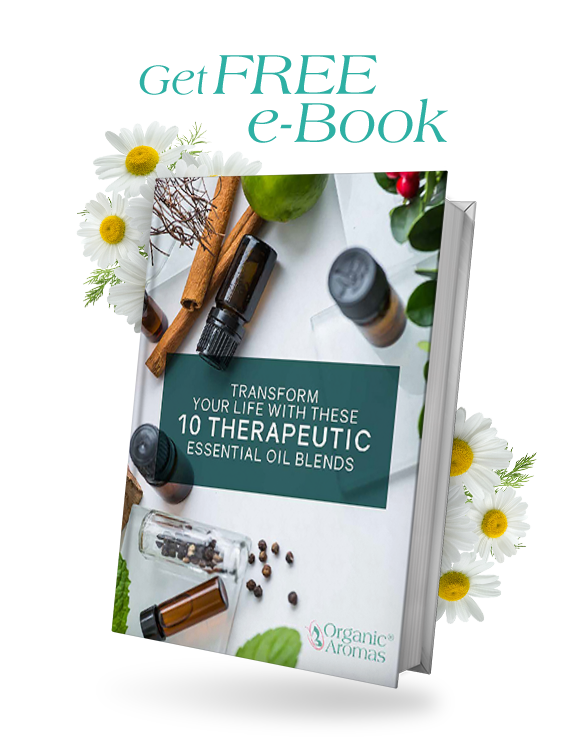
Sign Up to Get Your FREE Essential Oils e-Book Here
Mental and Emotional Health Consequences
Fatigue and Energy Loss: Men with low testosterone often report a significant drop in energy levels, leading to fatigue that affects daily productivity and quality of life.
Depression and Mood Swings: The hormonal imbalance can also affect mental health, leading to depression, irritability, and mood swings. This can strain personal relationships and impact professional performance.
Cognitive Decline: Emerging research suggests that testosterone may play a role in cognitive functions. Low levels have been associated with a decline in memory, focus, and motivation.
Exacerbation of Chronic Diseases
Obesity: Low testosterone can contribute to weight gain, creating a vicious cycle since obesity can further decrease testosterone levels, exacerbating health risks.
Diabetes: There is a strong link between low testosterone and type 2 diabetes. Testosterone helps regulate insulin, and its deficiency can worsen insulin resistance.
Cardiovascular Problems: Testosterone affects many cardiovascular risk factors, including cholesterol and triglyceride levels, inflammation, and vascular smooth muscle function. Low levels are associated with an increased risk of cardiovascular diseases.
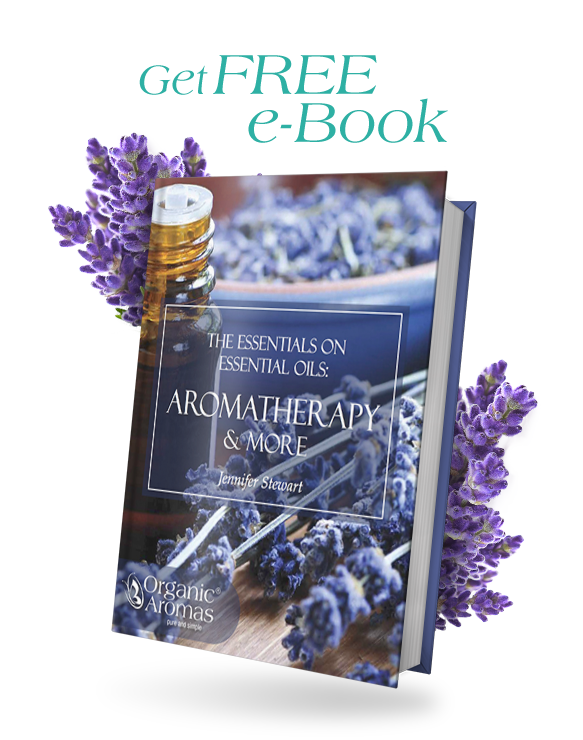
Sign Up to Get Your FREE
e-Book Here…
What Causes Low Testosterone?
The causes of low testosterone can be broadly categorized into several key factors, each contributing to the decline in hormone levels in different ways:
- Aging: Testosterone levels naturally decrease as men age, typically starting around the age of 30. This gradual decline is a normal part of aging but can lead to symptoms of low testosterone in some men.
- Obesity: Excess body fat, particularly around the waist, can negatively affect testosterone levels. Fat cells metabolize testosterone to estrogen, lowering testosterone levels and contributing to a cycle of weight gain and hormonal imbalance.
- Metabolic Disorders: Conditions like type 2 diabetes and insulin resistance are linked to low testosterone levels. These metabolic issues can disrupt the body’s hormone balance, leading to decreased testosterone production.
- Testicular Injury: Damage to the testicles, which are the primary producers of testosterone in men, can lead to decreased hormone production. This can result from physical injury, cancer treatments such as radiation or chemotherapy, or surgery.
- Certain Medications: Some medications can impact testosterone levels, including opioids, steroids, and medications used to treat prostate cancer. Always consult with a healthcare provider about the potential side effects of any medication.
- Lifestyle Choices: Lifestyle factors such as excessive alcohol consumption and smoking have been linked to lower testosterone levels. Both can affect the endocrine system and hormone production.
- Chronic Stress: Prolonged stress elevates cortisol levels, a hormone that can negatively affect testosterone production. Managing stress through various techniques can help mitigate its impact on testosterone levels.
How to Measure Low Testosterone
Testosterone levels are determined through blood tests, typically measured in nanograms per deciliter (ng/dL). A level below 300 ng/dL is generally considered low, prompting further evaluation and treatment options.
How is Testosterone Produced in the Body
Testosterone production in the body is a complex process involving multiple organs and hormones, primarily occurring in the testes in men and, to a lesser extent, the ovaries in women. The adrenal glands also produce a small amount of testosterone in both sexes. This process is regulated by the hypothalamic-pituitary-gonadal (HPG) axis through a series of hormonal signals:
- Hypothalamus Activation: The process begins in the brain with the hypothalamus. The hypothalamus releases gonadotropin-releasing hormone (GnRH), which signals the pituitary gland, located at the base of the brain, to produce and release two other hormones into the bloodstream.
- Pituitary Gland Response: In response to GnRH, the pituitary gland secretes luteinizing hormone (LH) and follicle-stimulating hormone (FSH). LH is particularly crucial for testosterone production.
- Testicular Production: LH travels through the bloodstream to the testes, where it stimulates the Leydig cells to produce and release testosterone. FSH, along with testosterone, plays a role in sperm production.
- Role of SHBG: Once produced, testosterone moves through the bloodstream, and a significant portion binds to a protein called sex hormone-binding globulin (SHBG). This binding helps regulate testosterone’s bioavailability, meaning how much of it is readily available for the body’s use. A smaller portion binds to albumin, a common blood protein, and a very small percentage remains unbound or “free,” immediately available for use by the body.
- Feedback Loop: The body regulates testosterone through a feedback loop. High levels of testosterone signal the hypothalamus and pituitary gland to reduce GnRH and LH production, respectively, thus decreasing production. Conversely, when testosterone levels are low, the hypothalamus increases GnRH secretion, stimulating the pituitary gland to release more LH and, subsequently, increasing testosterone production.
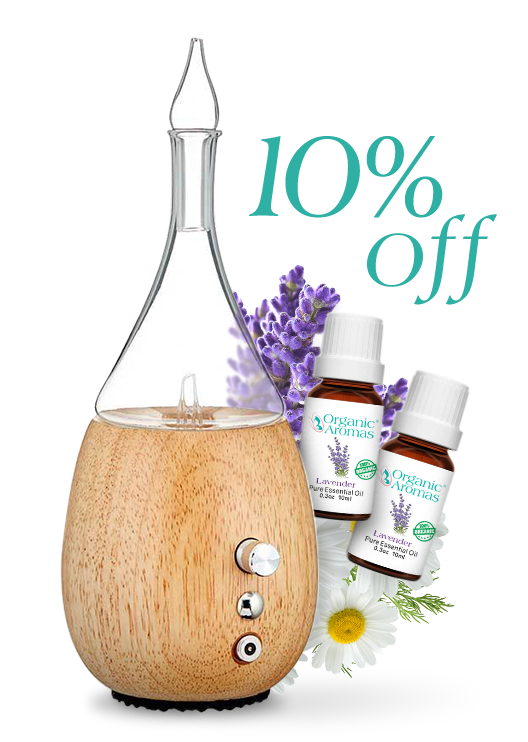
Join Now and Get a Coupon for 10% Off!
How do Essential Oils Work to Increase Testosterone in the Body?
The concept of essential oils boosting testosterone is more about the holistic effects certain oils may have on the body’s balance and stress levels rather than a direct chemical interaction with testosterone production pathways. Essential oils do not contain a specific “active ingredient” that directly boosts testosterone in the way pharmaceutical compounds do. Instead, their potential to influence testosterone levels is often linked to their ability to modulate stress, improve sleep quality, and support overall well-being, which can indirectly affect the body’s hormonal balance.
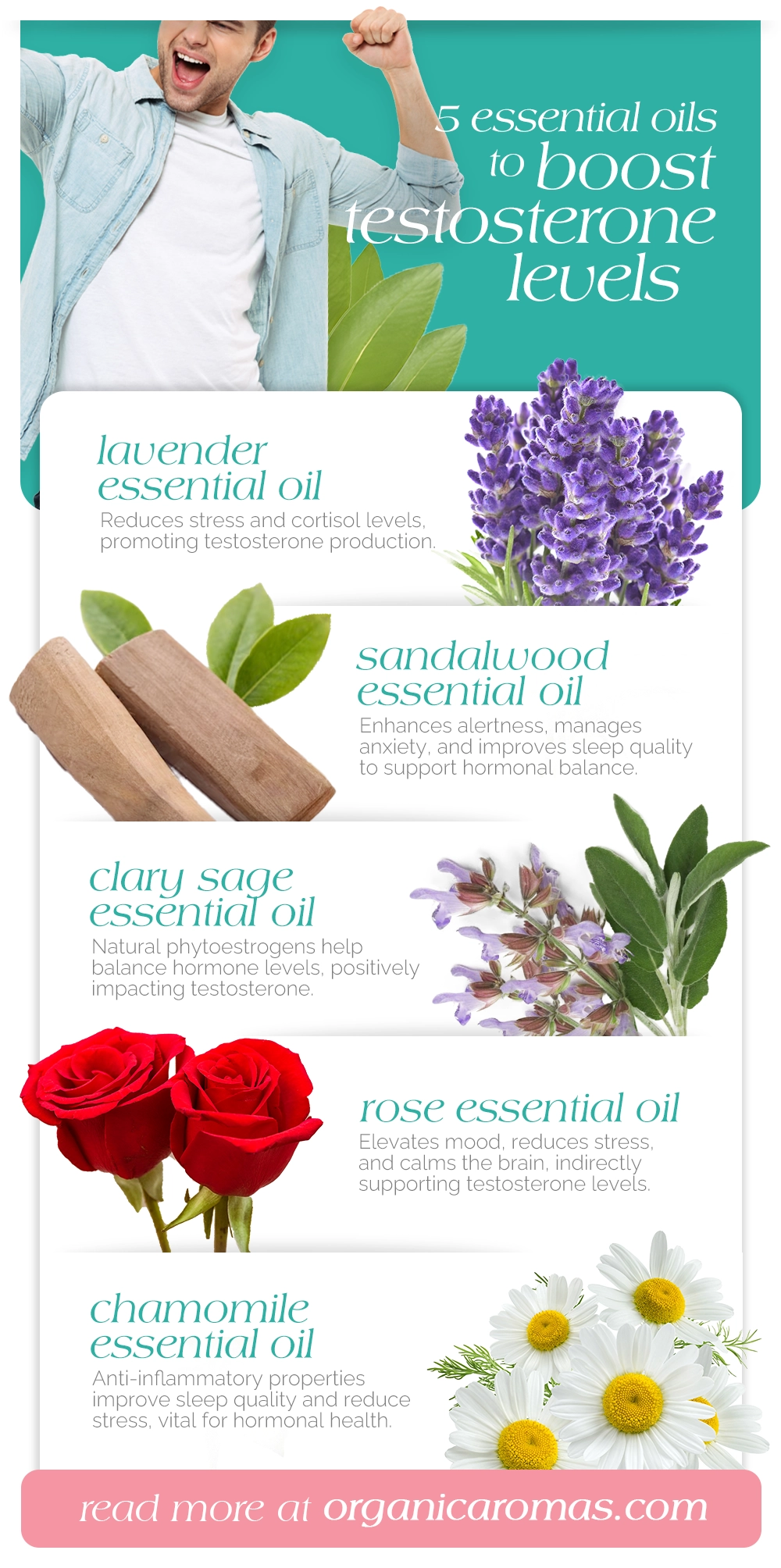
Top Essential Oils to boost Testosterone Levels
Testosterone boosting essential oils are quickly becoming one of the most respected natural remedies available, in large part due to the effectiveness they seem to provide. In the case of low testosterone, there are several different options that are worth looking at for the impact they can have on your testosterone levels. Here are 5 of the best essential oils effective enough to try.
- Lavender Essential Oil – Contrary to common belief, lavender essential oils may positively affect promoting testosterone production by reducing stress and cortisol, a hormone that inversely affects production. Its calming properties can mitigate stress-related damage and potentially support hormonal balance.
- Sandalwood Essential Oil – Sandalwood is renowned for its ability to increase alertness and manage anxiety. Its sedative effects may improve sleep quality, indirectly supporting the natural rhythms of hormone production, including testosterone.
- Clary Sage Essential Oil – Clary sage oil is thought to balance hormone levels naturally. It contains natural phytoestrogens, which are plant-based estrogens that can help in regulating hormonal imbalances, potentially influencing testosterone levels positively.
- Rose Essential Oil – Rose essential oil is another essential oil that can indirectly affect testosterone levels by improving mood and reducing stress. Its aroma is known to have a calming effect on the brain, which can help in reducing cortisol levels.
- Chamomile Essential Oil – Chamomile is widely recognized for its anti-inflammatory and calming effects. It may play a role in boosting testosterone by improving sleep quality and reducing stress, both of which are crucial for optimal hormonal health.
Administer the Essential Oils with Aromatherapy
Using a Nebulizing Diffuser stands out as the premier choice. This method is particularly advantageous for those seeking to harness the full potential of essential oils for hormonal balance. Unlike traditional diffusers that dilute essential oils with water, nebulizing diffusers work by atomizing the oils into a fine mist without dilution, ensuring that the oils retain their pure, therapeutic properties. This process allows for a more potent and direct absorption of the testosterone boosting essential oils into the body, potentially enhancing their effectiveness in influencing testosterone levels.
What are Other Natural Ways to Increase Testosterone?
Regular Exercise
Incorporating regular physical activity, particularly strength training and high-intensity interval training (HIIT), is one of the most effective ways to naturally increase testosterone levels. Strength training, such as weight lifting, stimulates muscle growth and increases strength by challenging the body, which in turn signals the need for more testosterone production.
Balanced Diet
Diet plays a crucial role in hormonal health. Consuming a diet rich in specific nutrients can support the body’s natural production:
- Zinc: This mineral is vital for testosterone production. Foods high in zinc include oysters, beef, spinach, pumpkin seeds, and lentils.
- Vitamin D: Often referred to as the “sunshine vitamin,” vitamin D has been linked to higher levels of testosterone. While sunlight is the best source, dietary sources include fatty fish, egg yolks, and fortified foods.
- Healthy Fats: Incorporating healthy fats, such as those found in avocados, nuts, seeds, and olive oil, can support hormone production, including testosterone.
Adequate Sleep
Sleep is a foundational element of hormonal balance. Lack of sleep can significantly reduce testosterone levels in the body. Adults should aim for 7 to 9 hours of quality sleep per night to support overall health, including optimal testosterone levels.
Stress Management
Chronic stress elevates cortisol levels, a hormone that negatively affects testosterone. Managing stress through mindfulness practices, meditation, yoga, or any relaxing activities can help lower cortisol levels and support testosterone production.
Avoiding Certain Habits
Certain lifestyle habits can negatively impact testosterone levels. Reducing alcohol consumption and avoiding tobacco products can prevent the adverse effects these substances have on testosterone production.

Join Our Exclusive Member Club to get Big Discounts!
Wrapping Things Up
Enhancing testosterone levels naturally requires a comprehensive approach that combines the therapeutic potential of many essential oils used, such as sandalwood and clary sage, with lifestyle modifications. Key strategies include engaging in regular exercise, particularly strength training and HIIT, maintaining a diet rich in essential nutrients like zinc and vitamin D, ensuring adequate sleep, and managing stress effectively.
This holistic approach emphasizes the importance of consistent, healthy lifestyle choices and the integration of natural remedies for optimal hormonal health. Consulting with healthcare professionals is essential to tailor these strategies to individual needs, paving the way for not only improved testosterone levels but also overall well-being and vitality.
Frequently Asked Questions (FAQs)
Which essential oil is known to boost testosterone levels?
While research on essential oils directly boosting testosterone is limited, oils like the sandalwood oil and clary sage have been suggested for their potential to balance hormones and improve overall well-being, which might indirectly support healthier testosterone levels.
Which fragrance is associated with elevating testosterone levels?
Scents that reduce stress and improve mood, such as lavender and rose, may indirectly support the body’s natural testosterone production by lowering cortisol levels, a stress hormone that can negatively impact testosterone.
Which herb is considered the strongest for enhancing testosterone?
Among herbs, ashwagandha is often cited for its benefits and its strong effects on increasing testosterone levels. It’s an adaptogen that has been shown to improve stress resilience, enhance sexual health, and increase testosterone levels in several studies.
What is the quickest method to raise testosterone levels?
Lifestyle changes such as incorporating regular exercise, particularly strength training and HIIT, along with a balanced diet rich in nutrients like zinc and vitamin D, are effective and natural ways to quickly impact testosterone levels. However, significant changes depend on individual health conditions and consistency in lifestyle adjustments.
Can consuming steak lead to higher testosterone levels?
Steak, which is rich in proteins, fats, and micronutrients like zinc, can contribute to a balanced diet that supports testosterone production. However, it’s important to consume red meat in moderation as part of a varied diet that includes plenty of vegetables, fruits, whole grains, and healthy fats to maintain overall health and hormonal balance.

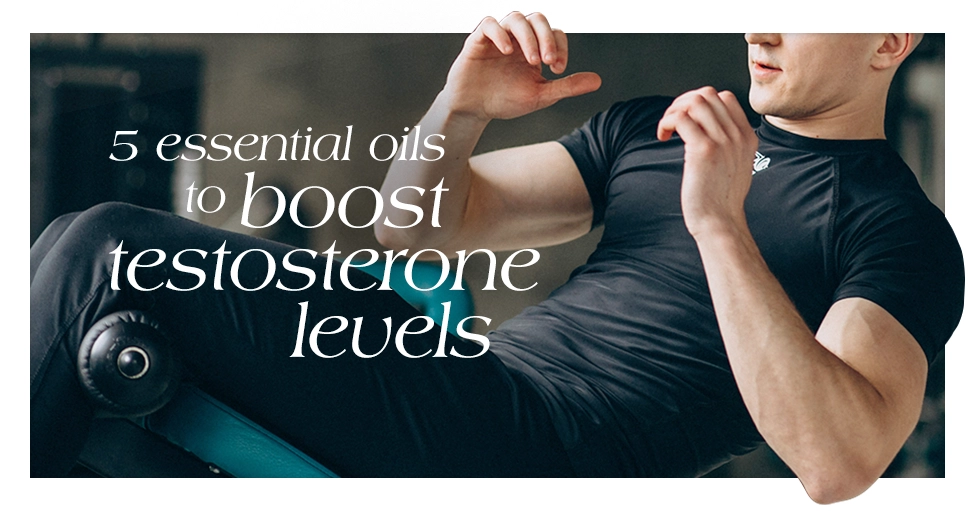
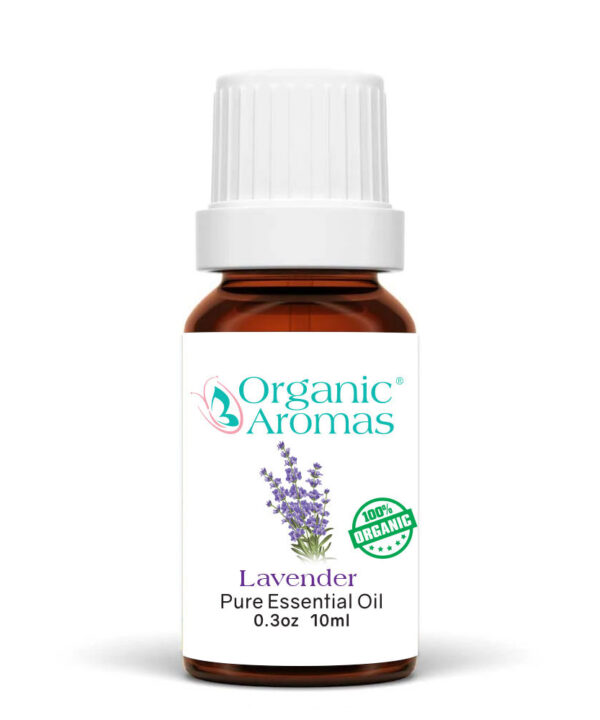
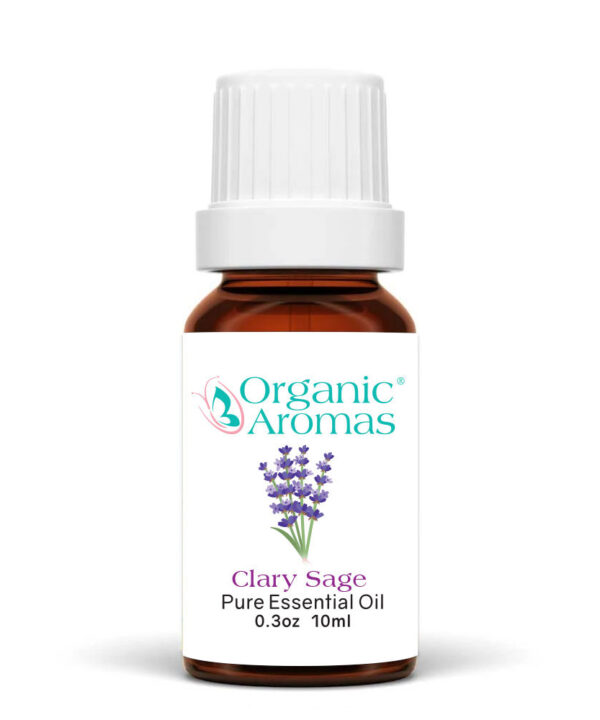
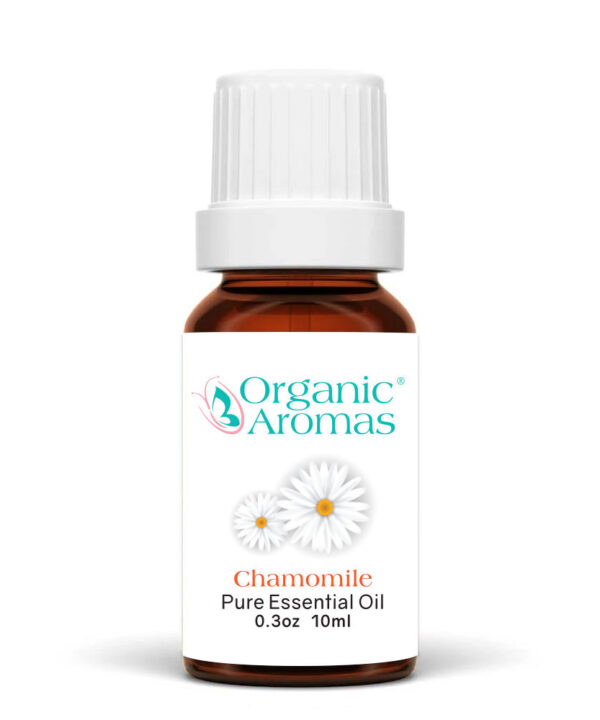

How do you use the essentiel oils? In drink, massage…
Essential oils definitely mess with hormones. I’ve seen the study on lavender oil that caused gyno in teenage boys but no further studies for adults. It would be useful for me because I developed gyno a few months ago and it was at a time where I used at least 5 drops of either peppermint or lavender oil on my wrist on a daily basis. It worried me a lot and I suspected it could have been the essential oils so after 2 weeks of not using the oils my gyno has shrunk by about 95%. The breast tissue that I had developed was only on one side the same side where I applied the essential oils. I dont know how long itll take for it to disappear 100% if it even can but take the warning. Essential oils are great and all but they do come with side effects
if youre a guy the only u should use oils like lavender and peppermint and rosemary on the body is on the scalp, those ones have been proven to act as a natural rogaine, to block the DHT from causing havoc in the scalp, i wouldnt use them anywhere else on the body
hey thanks for the info
have actually read that lavender was found in research to raise estrogen levels and cause breast formation in prepubescent boys…. doubt it causes testosterone levels to rise
Nick Sigma CWC is correct in what he wrote. If you doubt it, do your own research.
Citations? Essential oils are useful enough without making wildly unsubstantiated claims.
Yeah, “balances hormones”. Maybe a lawsuit for false advertising would help with balancing a sense of morals in these unscrupulous swindlers.
More evidence essential oils ‘make male breasts develop’
http://www.bbc.com/news/health-43429933
Nick you response is interesting, do you have educated knowledge in regards to hormones and essential oils? or how do you know that about the topic? JIT would help me make a decision to buy or not buy these oils for hormonal balance. thank you
First of all, all the essential oils mentioned in this article have NO direct relation to raising Testosterone levels whatsoever and no studies have ever proven that. So off the bat, the title is misleading to say the least. (may it’s good for driving sales up…)
Second, ALL of the essential oils mentioned are highly estrogenic and have been PROVEN in studies to RAISE ESTROGEN levels. This in turn throws off the estrogen/testosterone balance and indirectly LOWERS testosterone (lavender being the most estrogenic of the lot).
Third, yes it is true that these oils can help reduce stress. And yes in theory, by reducing stress we can potentially increase testosterone (when a man has normal hormone levels). HOWEVER, if the estrogen to testosterone ratio is off (for example when Estrogen goes HIGHER ) then all the oils in the world can’t help you and in fact, they will FURTHER damage your testosterone levels.
Last but not least, you cannot diagnose Testosterone levels based on symptoms alone. Only a comprehensive blood test which includes all major hormones (such as Free Test+Total Test, Estradiol, Prolactine, Progesterone etc) can reveal the true condition of a patient.
Nick Sigma CWC
Very useful information. will definitely put this on my bucket list to purchase.
Essential oils are fabulous and the power they have is absolutely amazing.
I had no idea there were testosterone boosting essential oils. This guide is very helpful!
I love essential oils! This is an interesting read!
I love essential oils. They are great for many things. I shared this with hubby!
I shared this article with my husband, thanks
This is my first time hearing about it, but am excited to know more. I like that it does have a lavender scent. I need a new diffuser and your brand is different from others that I’ve seen, used and known. I would love to win this one and get better acquainted with it, the brand and the oils.
Definitely need a new diffuser. this is my first time learning of this brand. def sets themselves apart from other brands. would love to win. thanks for the chance.
Will give to my main man to read.
Thanks for this awesome oppurtunity!
Interesting giveaway.
I’ve been hearing about essential oils wondering if they work. Love to see.
Thanks for the interesting article
Very interesting! This is a helpful article, thanks!
Need to up my essential oil stash!
wow !
I have used essential oils for as long as I remember but
I never knew all this .
thank you so much for this info.
blessings
Interesting information oil do a little bit of everthing
This is an amazing article! Thank you so much for sharing!!
Interesting article, thank you!
This was a very informative article! I would use this for myself. I love essential oils and truly believe that they help.
I never knew these oils could effect testosterone levels. I plan to use them to help my boyfriend. This was an informative and interesting article.
What I love about this article is that it’s geared toward men and the benefits to them using essential oils. Bravo to you
Am using essential oils on daily basis for my dry skin, for relax too, infact am amazed with their results ??
Thanks gor sharing this useful post
Essential oils are great!! They’ve really made a huge difference in my life ??
Essentials are are great to use
I am new to using essential oils and this is very informative.
Thank You
Love essential oils
Lavender is great for so many things.
Really interesting information. I have a girlfriend who uses testosterone cream. She swears by it. I will have to try some of these suggestions.
AWESOME!
So interesting! I’m already a fan of essential oils, but was not familiar with these properties. Thanks!
Interesting read!
I’ll share this with my husband
Great information, never knew this!
I knew essential oils were beneficial but I had no idea they help so much, even with men.
I find information on essential oils and how they can impact one’s body very interesting.
Now to find someone to test the testosterone hormone levels on… with the doc’s approval of course!
Wow. Learn something new everyday. Very good info. Thank you.
very interesting.
Great info. One question? How much should you use of each?